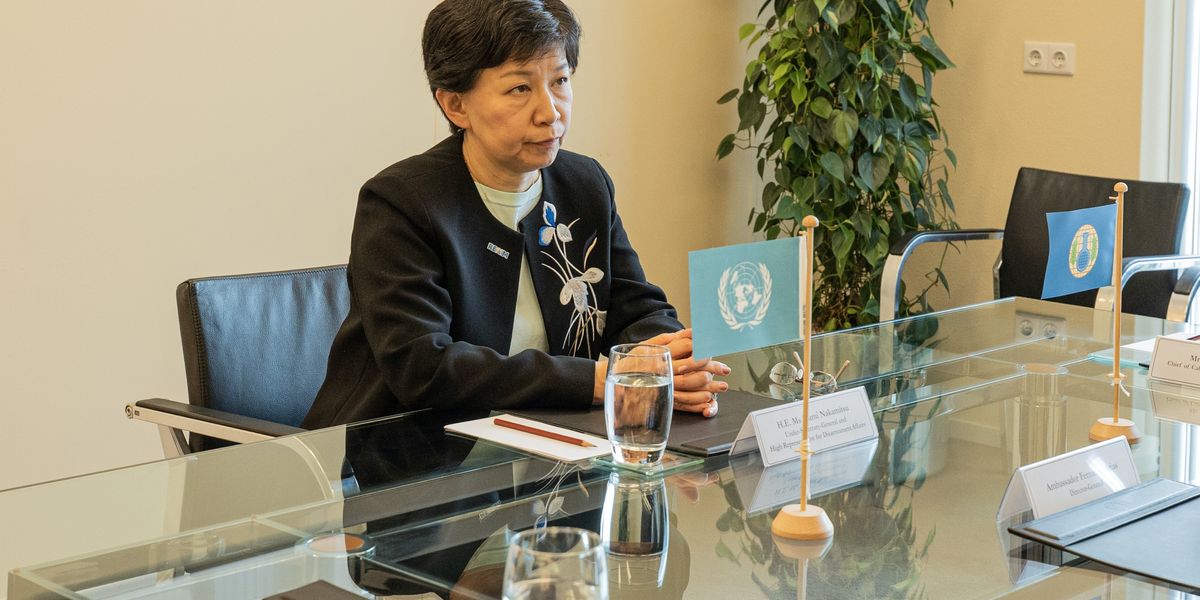
The head of the United Nations disarmament division warned Thursday of the need for urgent global action to eliminate atomic weapons, especially during the current heightened tensions between the United States and Russia—the world's leading nuclear powers—over the latter's thermonuclear threats during its invasion of Ukraine.
Addressing attendees of the International Campaign to Abolish Nuclear Weapons' "ICAN Act On It" Forum in Oslo, Norway via a pre-recorded video message, United Nations High Representative for Disarmament Affairs Izumi Nakamitsu linked the concept of "humanitarian disarmament" with international agreements including the Convention on Cluster Munitions, the Anti-Personnel Landmine Ban Convention, and the Treaty for the Prohibition of Nuclear Weapons (TPNW).
"It is clear that a desire to avoid the unspeakable human suffering caused by the use of nuclear weapons is a driving force for nuclear disarmament efforts," Nakamitsu said. "Such efforts are needed now more than ever."
"Since the invasion of Ukraine by the Russian Federation just over one year ago, we have witnessed an increase in dangerous nuclear rhetoric," she noted. "There has been a further breakdown of trust among the two states with the world's largest nuclear arsenals. In the past weeks, we have seen the suspension of inspections under the last remaining treaty limiting the size of these arsenals."
"Nuclear risk is at the highest level since the depth of the Cold War," said Nakamitsu, who highlighted "five key measures that can be taken" to "reverse current dangerous trends":
- State parties to the TPNW should make headway in implementing their treaty and continue to forcefully advocate for its principles;
- States that have yet to sign or ratify the TPNW should make a serious study of the treaty that takes into account its articles, its normative value, and its operation to date;
- States that choose to remain outside the TPNW should use the avenues available to them—including victim assistance, environmental remediation, nuclear disarmament verification, and further study of the humanitarian consequences of nuclear weapons—to make progress on nuclear disarmament;
- States should condemn nuclear threats and blackmail and demand progress toward the total elimination of nuclear weapons—not in spite of, but precisely because of today's deteriorating security environment; and
- Civil society must continue to hold states—and the United Nations—accountable for living up to their promises, and for making tangible progress toward our shared goal of a world free of nuclear weapons.
"Though we are living in a moment of increased confrontation and militarization, one fundamental truth remains unchanged: The only way to eliminate nuclear risk is to eliminate nuclear weapons," Nakamitsu concluded. "This remains the highest disarmament priority of the United Nations and we will continue to work with all member states and all other stakeholders to that end."
This content originally appeared on Common Dreams and was authored by Brett Wilkins.